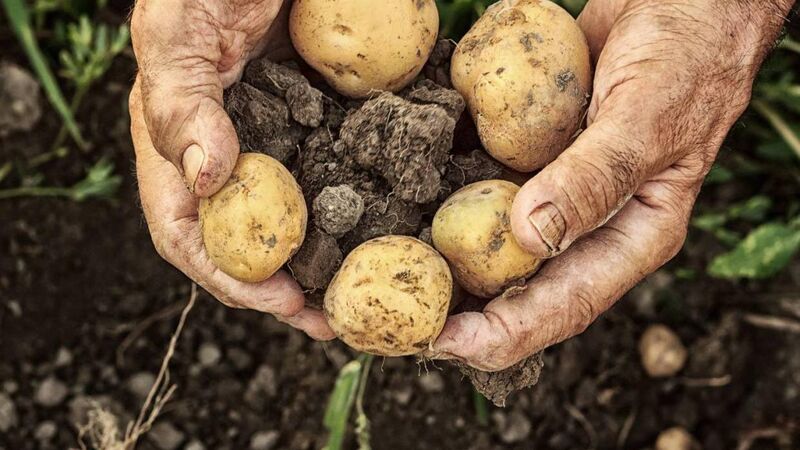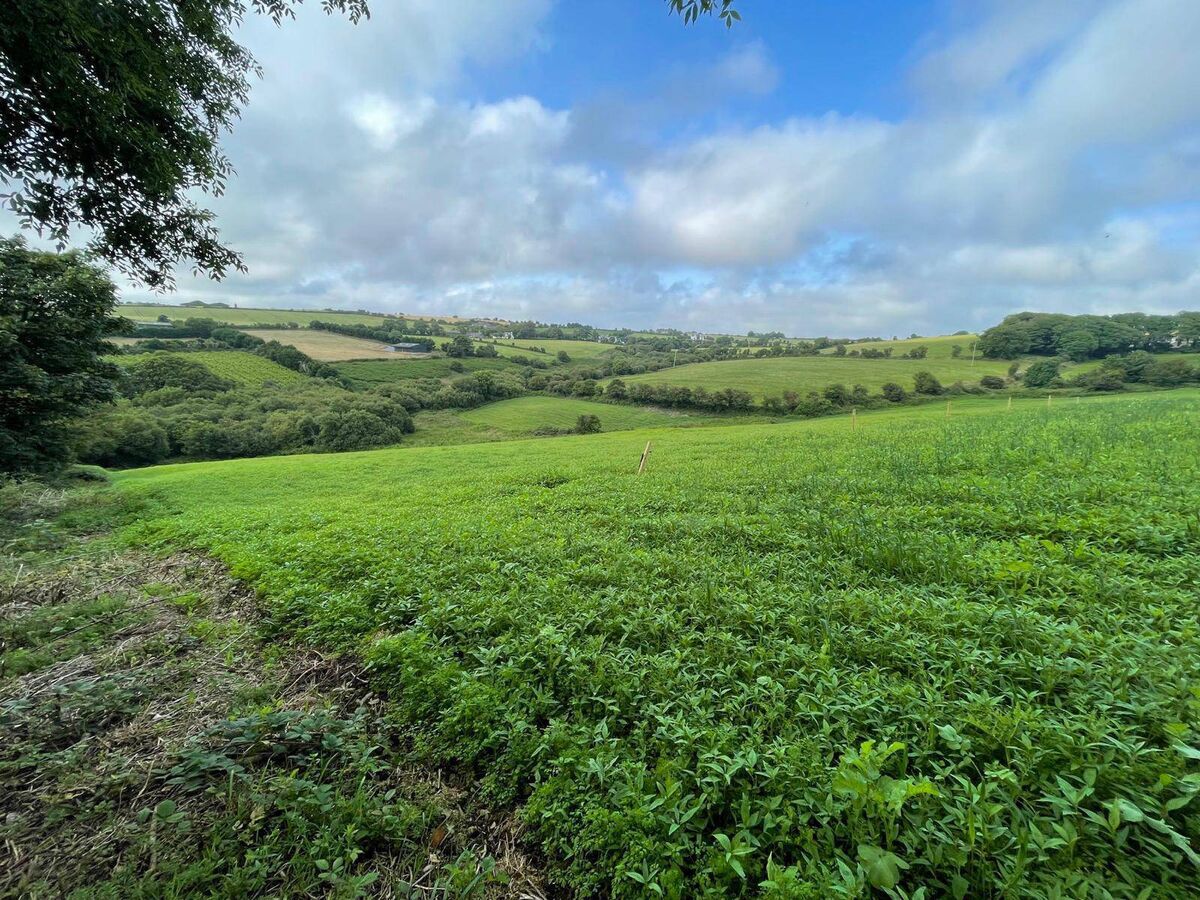Farming the land in Ireland: Is it still a viable career path?

Farming has been placed at the top of Carmel Wright’s son’s career choice list - but is it a viable option, she asks?
A purchase later, we set up our growing zone in the kitchen, and just like that, the growing bug kicked in. Suddenly, a few potted tomato seeds gave way to more exotic options, and we are currently attempting to grow salad leaves, pumpkins, cucumbers, and melons, too.
As someone who believes indoor plants exist to have their drought resilience tested, the task of watering falls firmly on Fionn’s shoulders, which he is completing with admirable enthusiasm but questionable aim.
Despite the wet floors and the collection of repurposed yogurt pots in trays forming an eyesore in my kitchen, it is all worthwhile to see the excitement and enthusiasm as he watches his crops grow.
Growing is an act of nurturing, and it is delightful to watch this new hobby provide him with a sense of responsibility and expand his understanding of nature. I didn’t anticipate the career talk that would ensue as a result.
Farming is now at the top of Fionn’s career choice list, beating niche occupation alternatives, including monster truck driving and YouTube gamer.
While I was relieved to see him set his sights on something more practical, it gave me pause to consider whether farming would be a career I’d recommend for my son.
Crop yields are at the mercy of threats, including pests, weeds, and an increasingly challenging climate. Livestock needs to be tended to; there is no calling in sick, and cows still need to be milked twice daily, even if you are dying of the flu.
It comes with a heavy weight of responsibility, tending to crops, livestock, and the land.
For the considerable sustained efforts farmers make, you’d imagine they live on the fat of the land, so to speak. While the average salary in Ireland was €52,971 in 2022, a family farm averaged less than this, at €48,809, according to the latest Teagasc report.
However, averages can be deceiving, and closer inspection reveals that during that period, 57% of farms earned less than €20,000.
The report also does not consider the additional unpaid labour that contributes to this figure, often shouldered by the farmer’s partner and children. This is something all farmers’ children can attest to.

I have fond memories of learning to communicate with the herd while blocking off a road by saying “hup hup” in the appropriate tone of voice to indicate my authority over bovines, carrying buckets of warm, frothy milk to doe-eyed hungry calves, sowing potatoes to the rhythm of a three-count, and scratching legs from the sharp straw stubs as I stacked bales come harvest time.
The latest CSO information reveals that more than two in five farmers are now also working off the farm, juggling both as the responsibility is shifting onto this generation’s shoulders; they are rising to the challenge, but with their eyes open to the limited financial benefits that come with farming their homestead.
Farmers across Europe have been kicking up a storm since the start of the year. Between spiraling costs, increasing regulations, and mounting cumbersome and onerous bureaucracy, they are at the end of their tether. All things considered, it is surprising these protests haven’t come much sooner.
Irish farmers have been holding rallies in solidarity with protests by EU counterparts. Francie Gorman, the Irish Farmers’ Association (IFA) president said; “They are just as frustrated by what is happening as farmers in other countries. They feel they are being regulated out of business by Brussels bureaucrats and Department of Agriculture officials who are far removed from the reality of day-to-day farming.”
It’s also worth remembering that farming has become a pensioner’s occupation for many. In 2020, almost a third of all farm holders were 65 or over. We are expecting them to grow our food against the backdrop of the increasingly challenging climate of wetter winters and dryer summers, care for the land and its biodiversity, follow a constantly evolving rulebook from the EU, and spend a considerable amount of time on online admin - all for €20k?
Ursula von der Leyen, President of the European Commission, launched the inaugural meeting of the Strategic Dialogue on Agriculture in January, the first of five plenary meetings that will culminate in the creation of a report.
Whether this is an exercise in PR crisis management to placate an increasingly angry sector or authentic engagement to begin genuinely listening to and tackling the challenges farmers are facing remains to be seen. For all the little Fionns (and Fionas) imagining a farming future, I sincerely hope it is the latter.

Despite the economic hardships and uncertainty, the challenges of climate change, and the bureaucratic burden placed on farmers’ shoulders, they endure and carry on. Why? It’s honest and challenging work that leaves you tired but satisfied at the end of a long day.
But then, what is the alternative? Instead of days spent immersed in nature, my son could choose any number of careers that would see him enjoy the comforts of an office chair, a long commute, and up to 50 hours on a computer screen. He’d receive a steady income, a decent retirement plan, and healthcare he’d need from sitting down for so long. All careers come at a cost and with pain points. It’s a matter of choosing what matters most to you.
While Fionn’s decision to farm will rest solely on his shoulders, the extent of challenges he will face in the fields will be shaped by the actions we all take on climate change.
The regulations he will need to follow, and the level of financial security he will have, will be influenced by the stand farmers are taking across the EU today and the outcomes the Strategic Dialog underway and the Common Agricultural Policies yet to come.
There is a decade of change ahead that will undoubtedly transform the agri sector. But for now, my focus is on seeing what Fionn’s growing trial will yield in the coming months.







 App?
App?




